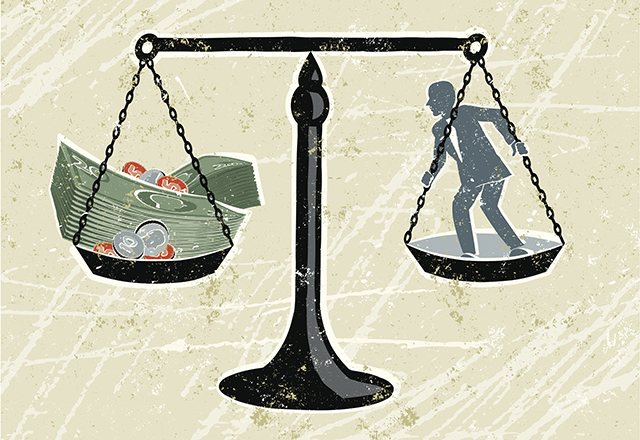This summer, I took a road trip that ran through South Carolina and decided to stop by Sumter, a little town where I had lived for a few years as a preteen. Of Sumter’s 40,000 residents, 20.6% live below the poverty line, with a median household income of $38,562. Although the poverty rate in Baltimore is similarly high at 23.8%, the median household income of a student at Johns Hopkins is $177,300. The shocking and repugnant divide between Johns Hopkins students and the Baltimore community has been covered extensively elsewhere, but the experience of lower income students at Hopkins has received less attention.
I grew up in the South, where I attended public school, and for the most part did not have to deal with huge socioeconomic divides. My family was working class, as were most of my peers’. When I first arrived at Hopkins, however, I immediately felt out of place. Even during my interviews, I caught glimpses of the rampant classism that pervades private education in the Northeast. These instances of social tension have only intensified as I’ve continued my education here. There is a remarkable dearth of awareness and compassion among the wealthy elite toward those from less fortunate socioeconomic circumstances.
My first months as a graduate student, I all but starved since my graduate program offered no relocation assistance and our paychecks did not start immediately. My peers, meanwhile, were able to go out and experience Baltimore because they had other sources of money. Tensions continued as I heard other students recall summer adventures they experienced before starting graduate school. I had never known anyone who could afford to spend an entire summer not working. When my qualifying exam and first thesis committee meeting came around, I was deeply disheartened to hear that there was an unspoken expectation for students to provide refreshments. I knew academia could take tolls on my mental health and work/life balance, but I had no idea there would be literal costs that I could not afford.
Although there are many times I have been explicitly discriminated against at Johns Hopkins, daily slights and misunderstandings about socioeconomic privilege have taken a greater toll on my well-being. I never imagined having to explain why I couldn’t afford some fee or why a “harmless” joke about “being a poor graduate student” wasn’t actually so harmless. All of these daily classist experiences are in addition to the flagrant class discrimination of reimbursement culture in academia, in which students are expected to be able to pay several thousand dollars out of pocket (for conference/workshop costs, etc.) and then be reimbursed.
What is the resolution? I truly don’t know. Graduate student unions are on the rise, and at JHU, we do have the Graduate Student Association. However, with so few students coming from lower income households, representation is a real issue. I hope to help Hopkins foster more opportunities for low income students in my time here. Traveling back through Sumter this summer, I was reminded of how far I have come in life and how fortunate I am to receive my education from an elite institution like Johns Hopkins. However, I was also reminded of how far Johns Hopkins still has to go.
Related Content
- Underrepresented minority biomedical researchers: numbers, challenges and initiatives for change
- Are Physician Salaries Appropriate?
- Diversity at the Top of the Social Media Signaling Cascade
Want to read more from the Johns Hopkins School of Medicine? Subscribe to the Biomedical Odyssey blog and receive new posts directly in your inbox.

Really appreciate this piece. Thank you, for offering us a glimpse of your experience here at Hopkins.
Comments are closed.